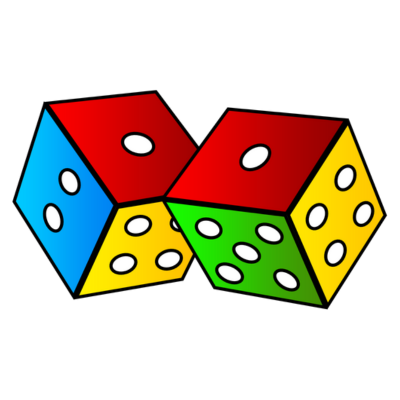Introduction
Ludo has remained a popular game for generations, and its digital transformation into mobile apps has introduced advanced mechanics that enhance gameplay, ensure fairness, and keep players engaged. A well-developed Ludo game must have seamless movement logic, a fair dice roll algorithm, multiplayer synchronization, and interactive user experience elements.
This blog explores the core mechanics behind mobile Ludo games, covering game logic, AI implementation, dice randomness, and multiplayer interactions that define a competitive and engaging Ludo mobile experience.

The Core Game Loop in Mobile Ludo Games
Every Ludo game follows a structured game loop, which determines player actions and progress. The basic cycle includes:
- Rolling the Dice – Generating a random number (1 to 6).
- Checking Movement Rules – Validating whether the rolled number allows a piece to move.
- Handling Player Actions – Moving a piece, capturing an opponent, or completing a lap.
- Checking Win Conditions – Determining if a player has moved all pieces to the home area.
A smooth and optimized game loop ensures real-time responsiveness and fair play.
Random Dice Roll Mechanism: Ensuring Fairness
Implementing True Random Number Generation (RNG)
A fair dice rolling system is essential to maintaining player trust. Mobile Ludo games use Random Number Generators (RNGs) to ensure that dice rolls are unbiased.
✅ Best practices for implementing RNG-based dice rolls:
- Use cryptographically secure RNG algorithms to prevent manipulation.
- Implement blockchain-based RNG for tamper-proof results in competitive Ludo games.
- Store dice roll logs on the server for verification and transparency.
Example: A blockchain-powered dice system allows players to verify that every roll is fair and unbiased.
Movement & Game Logic for Player Tokens
Rules Governing Token Movement
Each Ludo piece follows specific movement rules:
- Entry Rule – A player can enter the board only after rolling a six.
- Movement Restrictions – Players cannot move past their token in the same tile.
- Capture Mechanism – If a piece lands on an opponent’s token, it is sent back to the starting position.
- Safe Zones – Specific board areas where tokens cannot be captured.
✅ Optimizing movement mechanics for mobile:
- Use touch gestures for intuitive movement controls.
- Implement smooth animations for seamless token movement.
- Enable
Multiplayer Mechanism in Mobile Ludo Games

Real-Time Multiplayer Synchronization
Multiplayer Ludo requires accurate data synchronization to ensure players see moves instantly.
✅ Best practices for multiplayer mechanics:
- Use WebSockets for real-time communication between players.
- Implement rollback netcode for smooth turn-based interactions.
- Store game states on the cloud to allow reconnections after disconnections.
Turn-Based Game Handling
- Turn Timer Implementation – Sets a limit for players to make a move.
- Auto Move Functionality – If a player does not respond within a set time, AI moves their token automatically.
Example: A Ludo game with 5-second timeouts ensures fast-paced and engaging matches.
AI Mechanics for Single-Player Ludo Games
AI-Powered Opponents with Adaptive Difficulty
AI-based Ludo games use behavior-driven decision-making to simulate human-like opponents.
✅ Key AI features in mobile Ludo:
- Beginner AI: Plays basic, predictable moves.
- Advanced AI: Adapts to player strategies and makes defensive moves.
- Dynamic Difficulty Adjustment (DDA): AI difficulty increases as the player improves.
Example: If a player consistently wins, the AI adjusts its strategy to increase difficulty.
Interactive Features That Enhance Gameplay
1. Social Gaming & Multiplayer Engagement
A well-developed Ludo game includes:
- Friend Invite System – Players can challenge friends via social media.
- Voice & Text Chat – Real-time communication for better interaction.
- Emoji & Reactions – Adds a fun element to express emotions during gameplay.
2. Customization & Game Enhancements
- Custom Boards & Dice – Allows players to personalize their experience.
- Power-Ups & Boosts – Special abilities like extra moves or dice control.
- Leaderboard & Achievements – Keeps players engaged with ranking and rewards.
Example: A player can unlock exclusive dice skins and themed boards by completing challenges.
Interactive Features That Enhance Gameplay
Preventing Game Manipulation & Hacking
Online Ludo games require robust security measures to prevent cheating.
✅ Security strategies for fair gameplay:
- Server-Side Dice Rolls – Prevents manipulation by keeping dice rolls on a secure server.
- AI-Based Cheat Detection – Flags abnormal dice roll patterns.
- Blockchain-Based Game Logs – Stores every move transparently on a ledger.
Example: If a player manipulates dice rolls, AI detects irregular patterns and issues warnings or bans.
Future Innovations in Ludo Game Mechanics

1. AR & VR-Based Ludo Experiences
- Augmented Reality (AR) Ludo – Players can project the game board into the real world.
- Virtual Reality (VR) Ludo – Creates immersive digital Ludo environments.
2. AI-Powered Predictive Game Assistance
- AI-based move suggestions based on past player behavior.
- Machine learning to identify winning strategies and coach new players.
3. Blockchain-Based Play-to-Earn (P2E) Ludo
- Players earn crypto rewards for completing Ludo challenges.
- NFT-based tokens allow real ownership of game assets.
Develop a High-Quality Ludo Game Today!

Conclusion
A well-structured Ludo game mechanic ensures balanced gameplay, fair RNG, real-time multiplayer synchronization, and engaging AI opponents. Developers must focus on game logic, security, social engagement, and AI-driven mechanics to create a high-quality Ludo gaming experience.
By integrating modern innovations like blockchain, AI-powered strategies, and AR/VR-based gameplay, developers can future-proof their Ludo games and deliver a next-level gaming experience for players worldwide.
Partnering with a game development company can help developers implement cutting-edge features, optimize game mechanics, and ensure seamless performance for a top-tier Ludo gaming experience.



